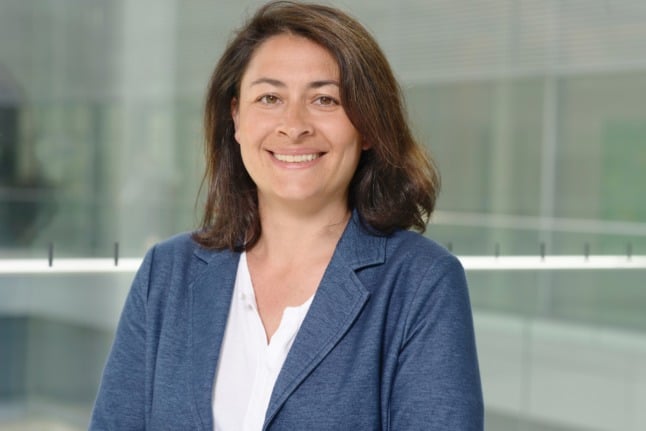As the landmark citizenship reform came into force on Thursday, there was an audible sigh of relief and cheer of jubilation from Germany’s international community.
But one cloud has been darkening the horizon: the threats from the right-wing CDU party to overturn the reforms the second they come back into power.
Speaking to DPA on Tuesday, CDU immigration spokesperson Alexander Throm slammed the reform for shortening waiting times for foreigners and allowing people to hold more than one nationality.
“The CDU and CSU will reverse this unsuccessful reform,” he said. “Dual citizenship must remain the exception and be limited to countries that share our values.”
After The Local reported Throm’s comments, foreigners got in touch to express their fears about the law being changed once again.
Writing on X, Canadian citizen Logan Ouellette, who lives in Berlin, said he was “already anxious” about another potential shake-up.
Already anxious about the CDU/CSU taking dual citizenship away after next year’s election, as they have plainly stated they would.
— Logan Ouellette (@foreigndispatch) June 27, 2024
So, how likely is it that the CDU and their Bavarian sister party, the Christian Social Union (CSU), will end up in government next year, and could they actually scrap the law?
Here’s what you need to know.
CDU/CSU could take power – but only with a coalition partner
It’s no secret that the traffic-light coalition parties are currently doing absolutely dismally in the polls, and recent elections have shown a significant lurch to the right in Germany.
In the June 9th EU elections, the CDU/CSU alliance emerged as the clear winners with 30 percent of the vote, while the Social Democrats (SPD), Greens and Free Democrats (FDP) lost 21 points between them. This is backed up by recent polling figures, which consistently show the CDU/CSU on 30 percent or more.
If things stay the same for another 15 months – and that it in itself is questionable – the CDU and CSU look set to be catapulted back into government.
But even if they do end up as the largest party in the federal elections next year, they are almost certain to need a coalition partner.
As part of its core principles, the centre-right alliance has erected a so-called Brandmauer, or fire-wall, against working with either the far-right AfD or the left-wing Linke party.
READ ALSO: German word of the day – Brandmauer
Pending a massive shake-up of German politics, that would only leave the SPD, Greens or FDP as potential coalition partners – all of whom are in the current government.
Speaking to The Local on Wednesday, Greens immigration expert Filiz Polat rebuffed the notion that the CDU/CSU alliance would ever have the numbers to reverse the citizenship law.
“The CDU/CSU is completely isolated with its announcement that it will revoke the citizenship law in the event of a change of government,” she said.

“It was the same with its ‘no’ to the Skilled Labour Immigration Act. All other democratic parliamentary groups in the Bundestag have clearly positioned themselves in favour of a modern citizenship law in a modern country of immigration.”
With the governing parties all speaking out passionately in favour of a liberal immigration policy and citizenship law, it’s hard to see a scenario in which they would agree to scrap it.
READ ALSO: How are Germans reacting to the new citizenship law?
For the SPD in particular, this would be a humiliating move for a party that unsuccessfully fought for years in coalition with the CDU/CSU to make dual nationality a reality.
The numbers in the Bundesrat don’t add up
Parliamentary sources have also told The Local that the CDU would need what’s known as an “absolute majority” in the Bundesrat in order to repeal the law. This means getting more than 50 percent of the vote.
The Bundesrat is the upper house of parliament that is comprised of the 16 state governments, each of which vote together as a bloc.
As an example, this means that if the CDU are in a state coalition with the Greens – as is the case in Baden-Württemberg, for example – both of these parties have to agree on which way to vote in the Bundestag.
If they can’t agree, this counts as an abstention.

That’s one reason it would be incredibly difficult to get any new attempt to tighten citizenship laws through the Bundesrat – even if a new law made it through the Bundestag.
With the exception of Bavaria, where the CSU governs alongside the Free Voters, or Freier Wähler, party, every single state coalition the CDU is part of involves some combination of of the Greens, SPD and FDP.
READ ALSO: What would German citizenship mean to foreign residents?
Greens politician Polat emphasised that the reforms to citizenship law would be “good for democracy” and help Germany compete for workers from abroad.
“The high demand for the German passport shows how many people living here want to get involved and have a say,” she said.
The immigration specialist also slammed the centre-right alliance for harming Germany internationally with its anti-foreigner rhetoric.
“With its anti-immigration discourse, the CDU/CSU is also damaging Germany’s reputation in the world,” she said. “I am increasingly receiving questions about this issue from abroad.”




 Please whitelist us to continue reading.
Please whitelist us to continue reading.
Member comments